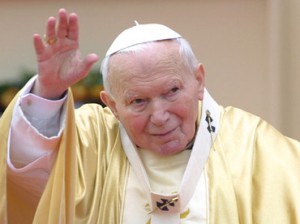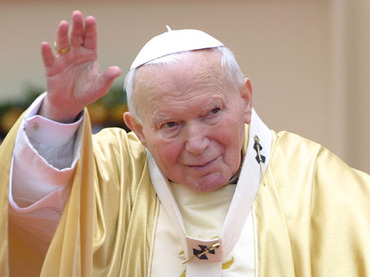
(AFP) – Pope Benedict XVI’s surprise resignation awakened hopes among Latin American supporters of liberation theology for an easing of Vatican pressure on left-leaning clerics.
“We hope that a new pope will create a more open atmosphere, and that Christians can have a dialogue about modern society without so many suspicions and criticisms,” Brazilian theologian Leonardo Boff said on Venezuela’s Telesur.
Boff, a leading figure in liberation theology who studied under the pope when he was still Cardinal Joseph Ratzinger, said 85-year-old Benedict XVI has been a “very controversial and complicated” figure.
Benedict’s decision to resign at the end of the month, announced on Monday to the astonishment of Catholics worldwide, removes a central figure in the church’s internal ideological struggles.
As Vatican doctrinal enforcer under Pope John Paul II, Ratzinger spearheaded the opposition to liberation theology, a movement with Marxist overtones that swept Latin America in the 1970s.
The movement focuses on Christ as the liberator of the oppressed and emphasises the Christian mission of bringing justice to the poor and oppressed, particularly through political activism.
Since the falling out, Evangelical Protestants have made major inroads in countries from Central America to Brazil and beyond.
Boff said the pope’s style in the past six years, which he described as “bureaucratic” and “tough”, “has made a lot of people feel like the Church is not their spiritual home any more.”
Boff, who left the priesthood in 1992 amid severe strains with the Vatican, praised Benedict XVI for making a decision to stand down as no pontiff has done in six centuries.
Still, this pope “has a very large negative impact on the history of Christian theology. He will go down in history as a Pope who was an enemy of the intelligence of poor people, and of their allies”, Boff argued.
The Jesuit community of El Salvador, which for decades has supported liberation theology, praised the pontiff’s resignation as a “responsible act”.
But it criticised him for not moving forward during his pontificate on the beatification of Salvadoran archbishop Oscar Romero, a tireless defender of the poor.
Jose Maria Tojeira, pastoral chief at the Jesuit Universidad Centroamericano (UCA) in San Salvador, said Benedict XVI had a “debt” to local Catholics, voicing hope that Romero’s beatification will come in a few more years.
Romero was slain in March 1980 by a right-wing death squad, after pushing insistently for greater social justice and respect for human rights, openly challenging the Cold War-era local political and military oligarchy.
Tojeira said he hoped the Church would elect a new pope who is “very committed to peace” and prepared to foster more solidarity with the poor in a world in which “social injustice and hunger” are the rule rather than the exception.
On Monday, Nicaraguan priest Ernesto Cardenal, a pillar of liberation theology, said he was “very happy” about the resignation of Pope Benedict XVI.
“I don’t know why he is resigning, but I am very happy that he is leaving the papacy,” the 88-year-old poet-priest told AFP.
Cardenal, who supported the 1979 revolution that ousted dictator Anastasio Somoza and became culture minister under Sandinista President Daniel Ortega in 1980, has criticised the papacies of Benedict and his predecessor John Paul II as a “step backward” for the Church.
Pope John Paul II famously reprimanded Cardenal during a visit to Nicaragua in 1983, shaking his finger in disapproval as the priest knelt before him.

